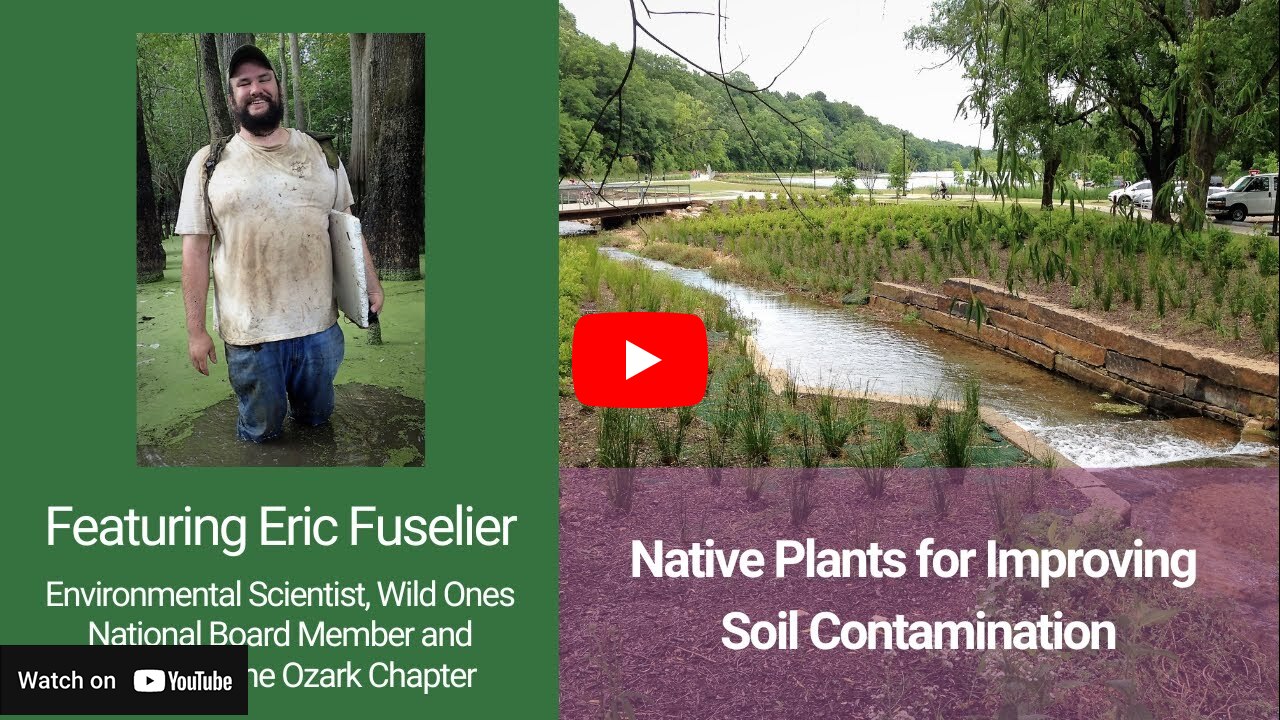This program goes in depth into how phytoremediation can be used to improve soil quality and covers a wide range of native plant species and contaminants, including petroleum, pesticides, heavy metals, and the emerging field of “phytomining,” an exciting new form of phytotechnology where heavy metals are reclaimed from the soil for reuse.

About the Speaker:
Wild Ones National Board Member Eric Fuselier is an Environmental Scientist at Olsson where he conducts environmental impact studies and works with civil engineers and landscape architects to minimize the environmental impact from the infrastructure projects they design. Eric chartered the Ozark Chapter in 2020, where he also serves as chapter president. Eric and his wife purchased an illegal dumping ground in northern Arkansas in 2014, and after cleaning it up and building their cabin with help from close friends and family, they have been working to establish native plants to replace all of the trash and invasive species that had taken over before purchasing it. Read more about what inspired Eric to become involved with Wild Ones on his Board bio.
Ozark Native Plants for Phytoremediation — Eric Fuselier
The following links list plant species native to the Ozark region that are suitable for soils with mild to moderate levels of contamination or planted as part of preemptive phytoremediation measures in locations at high risk for environmental damage.
- Ozark Native Plant Species for Phytotoremediation of Air Pollutants
- Ozark Native Plant Species for Phytotoremediation of Petroleum
- Ozark Native Plant Species for Phytotoremediation of Pesticides
- Ozark Native Plant Species for Phytotoremediation of Chlorinated Solvents
- Ozark Native Plant Species for Phytotoremediation of Heavy Metals
Please visit the Wild Ones Ozark Chapter for additional lists of Ozark region native plants for diverse residential garden and public landscape applications:
